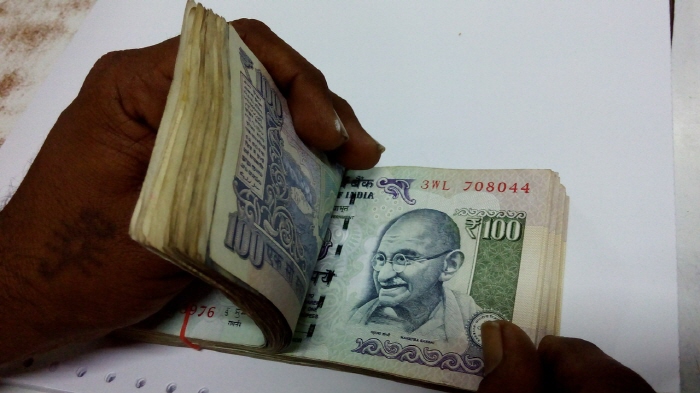Much of the attention this week will be on the winter parliamentary session which gets underway on 26 Nov (Thursday). While the contentious land and labour laws are likely gain more traction at the state level, focus will be on the GST constitutional amendments, where some softening of stance is expected. Recent developments heighten the risk of stiff resistance, which will require the government to reach out to the opposition to build consensus, especially as gaining a majority in the Upper house is not on the cards.
In the meantime, last week's pay commission's proposals continue to reverberate. If public sector wages are increased in accordance with the pay commission's proposals, a likely delay in fiscal consolidation will hurt the chances of a rating upgrade over the next few years. Not surprisingly, rating agencies sounded a word of caution. S&P highlighted that these pay recommendations will put pressure on the public finances, making it difficult to stick with the fiscal roadmap. Fitch echoed these concerns saying that the wage proposals will not only impact centre but also state finances.
India's cumulative fiscal deficit of nearly 6% of GDP compares unfavorably with the average deficit of -2.8% of GDP of the control group (of its rating peers). Weakness in the economy's fiscal health has been one of the key constraints on its sovereign ratings, with this add-on headwind to threaten the medium-term roadmap. Over the next year, these higher spending needs will put the FY16/17 fiscal target of -3.5% of GDP at risk.
The likely path for next year's fiscal math will boil down to restrain spending elsewhere, source additional tax revenues or renege on the deficit targets. If the targets are adhered to, allotments towards capital expenditure are likely to fall. In fact a cutback in public spending will be insufficient on its own to accommodate the additional commitments, making it necessary to plug other expenditure components (after the expenditure commission's report) and further rationalise subsides.
Fiscal risks will limit the room for further monetary stimulus. Past pay commission adjustments have been positive for consumption and by extension inflation expectations. This time around, even after factoring in global deflationary pressures and economic slack domestically, there is a likelihood that the wage adjustments could prove inflationary. A case in point is the adjustment in the housing allowance, will push up the related inflation index (10% weightage) over the next year.
Hence a combination of the pending wage adjustments, impact of base effects, delay in supply-side fixes and external event risks (US Fed rate hike risks) will put the 5% target of Mar17 at risk. This, by extension, will leave the central bank on a cautious footing.
"We expect the policymakers to air these concerns in its earlyDec policy review, with the guidance likely to point towards a prolonged pause into the next fiscal year", notes DBS Group Research.
Rating agencies sound cautious post-pay commission in India

Monday, November 23, 2015 2:14 AM UTC
Editor's Picks
- Market Data
Most Popular



 Gold Prices Fall Amid Rate Jitters; Copper Steady as China Stimulus Eyed
Gold Prices Fall Amid Rate Jitters; Copper Steady as China Stimulus Eyed 






























